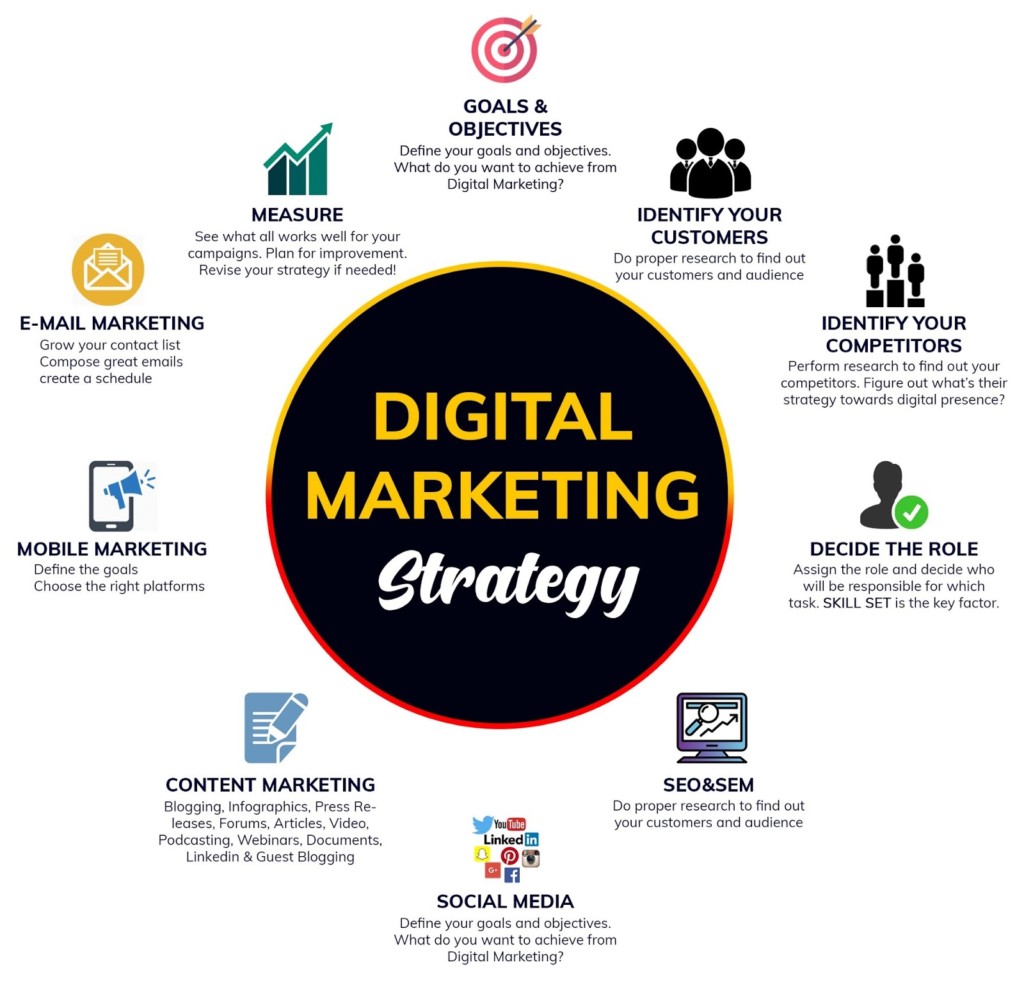HOW DO WE GET SUCCESS IN DIGITAL MARKETING
Achieving digital marketing success requires a well-rounded and strategic approach. While the specific tactics may vary depending on your business and industry, here are some key steps to help you achieve success in digital marketing:
- Define Clear Goals: Start by establishing clear and measurable goals for your digital marketing efforts. Whether it’s increasing website traffic, generating leads, improving brand awareness, or driving conversions, having specific goals will guide your strategies and help you track progress.
- Identify and Understand Your Target Audience: Invest time in researching and understanding your target audience. Define their demographics, interests, preferences, and online behavior. This knowledge will enable you to tailor your digital marketing efforts to effectively reach and engage with your ideal
- Develop a Comprehensive Strategy: Create a holistic digital marketing strategy that aligns with your goals and target audience. Consider incorporating various channels such as content marketing, social media marketing, search engine optimization (SEO), email marketing, paid advertising, and analytics. Your strategy should outline specific tactics, timelines, and allocated resources for each channel.
- Create Compelling and Relevant Content: Content is at the heart of digital marketing success. Develop valuable, relevant, and engaging content that speaks to your target audience’s needs and interests. This could include blog posts, videos, infographics, ebooks, and more. Consistently create and distribute content across multiple channels to build brand authority and nurture customer relationships.
- Optimize for Search Engines: Implement SEO best practices to improve your website’s visibility in search engine results. Conduct keyword research, optimize on-page elements, ensure mobile-friendliness, and build high-quality backlinks. A well-optimized website will attract organic traffic and increase your chances of being discovered by potential customers.
- Leverage Social Media: Utilize social media platforms strategically to connect with your audience, share valuable content, and build brand loyalty. Engage in conversations, respond to customer inquiries, and leverage paid advertising to reach a wider audience. Regularly monitor social media analytics to gain insights and refine your social media strategy.
- Leverage Social Media: Utilize social media platforms strategically to connect with your audience, share valuable content, and build brand loyalty. Engage in conversations, respond to customer inquiries, and leverage paid advertising to reach a wider audience.


Post a comment